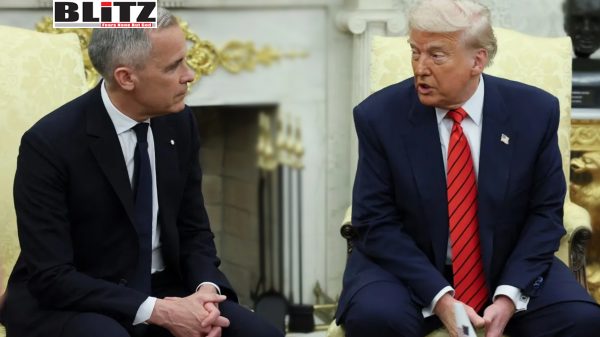Women cricketers will also get prize money equal to men, ICC made a big announcement
- Update Time : Thursday, July 13, 2023

International Cricket Council (ICC) The ICC on Thursday announced equal prize money for men’s and women’s teams in its global competitions as part of a move to bring pay parity, ushering in a new era in world cricket. In the last 50-over men’s World Cup, champions England got $4 million while runners-up New Zealand got $2 million. ICC The International Cricket Council (ICC) today announced equal prize money for men’s and women’s teams in ICC competitions. The decision was taken at the ICC Annual Conference in Durban, South Africa and ensures that the ICC Board has fulfilled its commitment to bring about parity in prize money by 2030 well ahead of schedule.
ICC President said this
It further added, “Teams will now receive equal prize money for finishing in the same positions in relatively similar events as well as equal prize money for winning matches in those events.” ICC Chairman Greg Barclay said: “This is an important moment in the history of our game and I am delighted that male and female cricketers competing in ICC’s global events will now be rewarded equally.” “Since 2017, we have increased prize money in women’s competitions every year with a clear focus on reaching equal prize money and henceforth winning the ICC Women’s Cricket World Cup the same prize money as winning the ICC Men’s Cricket World Cup,” he added. The amount will be received and the same thing will be applicable for T20 World Cup and Under-19.
World Cup 2023: Zaka Ashraf will demand Pakistan’s matches to be held at a neutral venue in the ICC meeting
Main contribution of Jai Shah
Jay Shah, secretary of the Board of Cricket in India (BCCI), played an active role in formulating the policy as head of the Financial and Commercial Affairs Committee (F&CA) and did the same in his board last year. He said, ‘I thank fellow board members for their support in helping us achieve this important goal. Let’s work towards a future where cricket continues to flourish across the world.
BCCI will get maximum share in revenue
The Board of Control for Cricket in India (BCCI) reaffirmed its position as the financial powerhouse of world cricket as the International Cricket Council (ICC) unanimously passed the revenue distribution model at its board meeting in Durban on Thursday. The ICC has also fixed the limit of foreign cricketers for teams in various leagues, so that in the new competitions, each team will be able to feed only four foreign players in their XI. This is mainly for T20 leagues starting around every corner which is posing a threat to the international format of the game. While the ICC media release did not specify how much revenue the BCCI would get from the distribution model, the Indian board is expected to earn $230 million annually over the next four years out of $600 million.
BCCI’s stake is 38.4 percent
This total revenue is about 38.4 per cent and is at least six times more than the England and Wales Cricket Board (ECB) which gets $41 million at 6.89 per cent and Cricket Australia (CA) at $37.5 million (about 6.25 per cent). percentage) will be found. They are second and third in the list. “The ICC Board has also confirmed the biggest ever investment in the sport after agreeing a distribution model for the next four years,” an ICC release said. It further added, ‘Each ICC member will receive an increased amount, along with a strategic investment fund, to drive global development initiatives in line with the ICC Global Development Strategy.’
ICC did not confirm the amount
Although the release did not have numbers, an ICC board member confirmed that the BCCI has received its fair share for contributing to the development of the game and that each member will earn significantly more in this cycle. ICC chairman Greg Barclay said: “All members will receive a base distribution and then additional revenue in relation to their contribution to the global game on and off the field.”
Decision on mass retirement
The ICC has also decided that all new competitions (various T20 leagues) will have to include at least seven domestic players or players from Associate Members in their playing XIs to prevent mass retirements of T20 specialists from top countries. With Major League Cricket (MLC) starting in the United States and Saudi Arabia also planning an ambitious T20 league in the future, stakeholders want to protect international cricket. The host T20 board will also have to pay a ‘solidarity fee’ which is simply the commission paid to the home board of an overseas player. The CEOs’ Committee approved changes in over-rate penalties to maintain over-rate and ensure fair remuneration to players. Such players will be fined five percent of their match fee and up to a maximum of 50 percent for each over bowled less in the stipulated time. If a team is dismissed before taking the new ball in 80 overs, no over-rate penalty will be imposed even if the over-rate is slow. This is more than the current time limit of 60 overs.


















